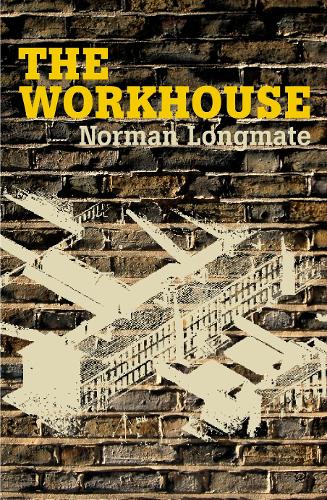
The Workhouse
(Paperback)
Publishing Details
The Workhouse
By (Author) Norman Longmate
Vintage
Pimlico
15th June 2003
United Kingdom
Classifications
General
Non Fiction
Poverty and precarity
Social and cultural history
Sociology: work and labour
362.5850942
Physical Properties
Paperback
336
Width 153mm, Height 234mm, Spine 25mm
329g
Description
Everyone has heard of the workhouse. But exactly what was it Who went there And how did an institution so universally hated come to be set up This title tells the story from its first beginnings in Elizabethan times until the final demise of "the union" in the 1940s. The book concentrates, however, on the Victorian workshouse in the years of its tarnished glory. It describes the circumstances which in the 1830s led to the opening of 600 new workhouses, against astonishingly little effective oposition, and it explains why radicals like Francis Place and humane reformers like Lord Brougham supported the New Poor Law, while a handful of Tories like Disraeli and arch-reactionaries like Colonel Sibthorpe fought against it. It records riots, the protests, the pleadings, with which the poor challenged their virtual enslavement, and the misery of their daily life when they were finally incarcerated within the workhouse walls. What did gruel taste like Why was the workhouse uniform so uncomfortable to wear How did it feel to pound bones all day, or grind corn or scrub floors How was Christmas Day in the workhouse celebrated in reality Norman Longmate has answered these and many more questions. All the essential facts - of legislation passed and numbers admitted are presented, illustrated by a wealth of anecdote, which reveals in human terms the meaning of the poor laws and regulations.
Reviews
Excellent... Longmate's achievement in this moving history, like Henry Mayhew's in London Labour and the London Poor, has been to record the experiences of people who, friendless and despairing, otherwise left few traces of themselves behind -- Matt Shinn * New Statesman *
Norman Longmate has a reputation for careful research among original documents and a lively sense of anecdote, and this history of the Victorian workhouse amply demonstrates both qualities * The Times *
It is a strength of Norman Longmate's finely researched book that it is filled with such human reminders that the people who lived out meagre lives behind the high walls were living beings * Spectator *
Author Bio
Norman Longmate was born in Berkshire, and educated at Christ's Hospital. After war service he read modern history at Worcester College, Oxford. He subsequently worked as a journalist in Fleet Street, as a producer of history programmes for the BBC, and for the BBC Secretariat. In 1981 he was elected a Fellow of the Royal Historical Society and in 1983 he left the BBC to become a full-time writer. He has written more than twenty books, mainly on the Second World War and on Victorian social history. He has frequently been employed as an historical adviser for film and television.
